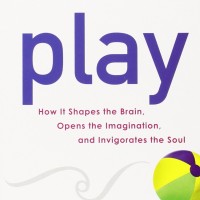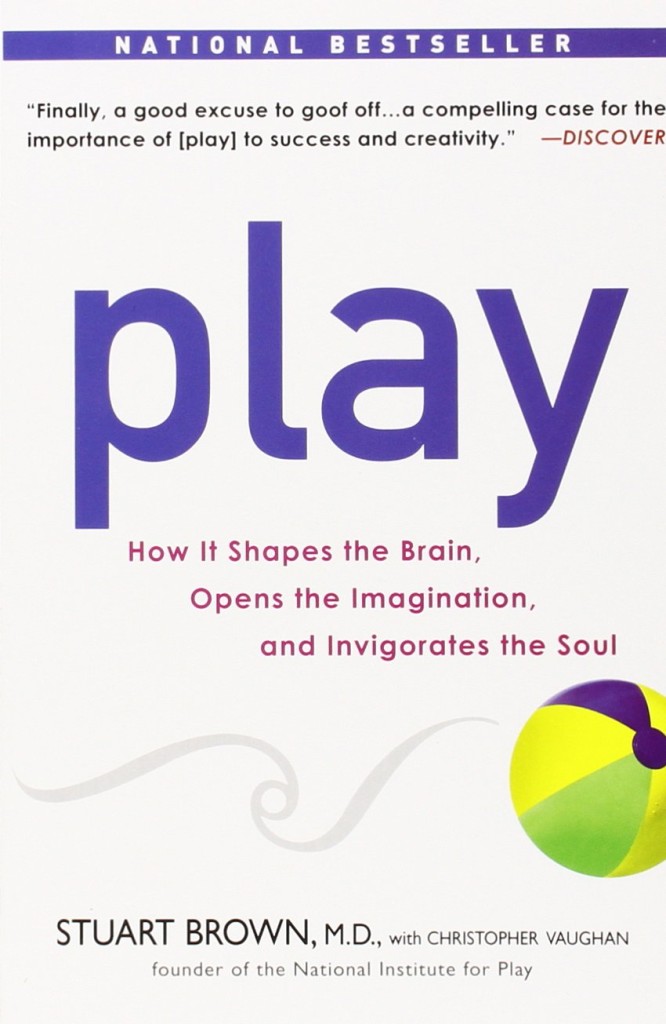
Saturday: Reviews & Recommendations (Book Review)
Play: How It Shapes the Brain, Opens the Imagination, and Invigorates the Soul
I think I heard about the book, “Play” from Mark Sisson, I read it about 4 years ago. One of the most important aspects of play is that it allows us to make mistakes. Mistakes we can learn from and mistakes that force us to grow. Two of the most important books that I have read are Robert Kiyosaki’s book, “If You Want to Be Rich & Happy Don’t Go to School” and the award-winning New York school teacher John Gatto’s book: “Dumbing Us Down: The Hidden Agenda of Compensatory Education.”
Falling down teaches us to pick ourselves back up. The less we fall the more fearful we are of falling and the harder it is to get back up. This certainly is evident in Parkour where bigger and bigger obstacles have to be overcome (leaps of faith).
The problem that these authors mention with traditional schooling is how tests and replies to answers are structured – we are either right or wrong. Overtime, in life, if we are always choosing between answer A and answer B – it robs us of our vision of other possible answers to decisions that we face. It prevents us of thinking about different outcomes and experiences in advance.
Test taking also imprints a negative psychological response to low test scores. Tests should teach us that we have a greater capacity to learn – tests (aka learning) should not be stressful. Falling down should not be stressful. The more we interpret our failures with negative frameworks the less open we become to the journey that learning can bring.
Time should be spent reflecting what our failures can teach us. I hardly remember teachers that I have had going over tests after they were taken. We either did good or did bad (we either were smart or we weren’t very smart). This is often not the school teachers fault but how the curriculum is structured.
The beauty of play is that it teaches us lessons without us having to spend a lot of time thinking about our mistakes. This is especially important for children who can learn from their mistakes without a lecture. They internalize the experience and it becomes more relevant for them firsthand rather than a ‘teacher’ telling them how they should feel or respond to that information.
“Play is intensely pleasurable. It energizes us and enlivens us. It eases our burdens. It renews our natural sense of optimism and opens us up to new possibilities. For us, play lies at the core of creativity and innovation.” – Stuart Brown
“As children, we don’t need instructions in how to play. We just find what we enjoy and do it. And from our play we learn how the world works, and how friends interact. Y playing, we learn about the mystery and excitement that the world can hold in a tree house, an old tire swing, or a box of crayons.”
“At some point as we get older, however, we are made to feel guilty for playing. We are told that it is unproductive, a waste of time, even sinful. The play that remains is, like league sports, mostly very organized, rigid, and competitive. We strive to always be productive, and if an activity doesn’t teach us a skill, make us money, or get on the boss’s good side, then we feel we should not be doing it.”
Properties of Play
Apparently purposeless (done for its own sake)
Voluntary
Inherent attraction
Freedom from time
Diminished consciousness of self
Improvisational potential
Continuation desire
“Once people understand what play does for them, they can learn to bring a sense of excitement and adventure back to their lives, make work an extension of their play lives, and engage fully with the world.”
Daydreaming
The author talks about how we all daydream about future events which leave an imprint on our brains. In business effectiveness can come from repeated imaginings of possible interactions someone may have on a particular issue. By the time we are faced with the situation we are well prepared for any contingency.
“The genius of play is that, in playing, we create imaginative new cognitive combinations. And in creating those novel combinations, we find what works.”
Stuart also talks about how good brainstorming is also a form of play. Here people joke, laugh, and suggest outrageous solutions as well as ‘respectable ones. Like other forms of play there is diminished sense of self, openness to improvisation, and a desire to keep the process going.
Here are 8 play personalities the author lists – which one are you?
Play Personalities
The Joker
The Kinesthete
The Explorer
The Competitor
The Director
The Collector
The Artist/Creator
The Storyteller
“The master in the art of living makes little distinction between his work and his play, his labor and his leisure, his mind and his body, his information and his recreation, his love and his religion. He hardly knows which is which. He simply pursues his vision of excellence at whatever he does, leaving others to decide whether he is working or playing. To him, he’s always doing both. “ – James Michener
Living in Accordance
“When people know their core truths and live in accord with what I call their play personality, the results is always a life of incredible power and grace.”
The author tells a story of a girl who in school was always fidgeting and never paid attention. School officials told her patients that she was mentally disabled and they sent her to a specialist. She sat in the doctor’s office fidgeting as he talked to her for twenty minutes, sitting on her hands. He put some music on and then left the room to talk to her parents. As they looked through the window into his office – they saw her moving to the music as soon as they left. The doctor looked at the parent and said, “Your daughter’s not sick, she’s a dancer.”
They enrolled her in dance school and she went on to achieve great things. This story demonstrates the beauty of living in accordance with who someone is – which meant for her living a life of motion and music.
“Ultimately, this book is about understanding the role of play and using it to find and express our own core truths. It is about learning to harness a force that has been built into us through millions of years of evolution, a force that allows us to both discover our most essential selves and enlarge our world. We are designed to find fulfillment and creative growth through play.”
Smart Moves
This reminds me of Carla Hannaford’s book, “Smart Moves: Why Learning is Not all in Your Head.” In this book, she discusses the need for movement to facilitate learning. Movements like crawling are natural resets – not just for our body but for our brain.
“The opposite of play is not work – the opposite of play is depression.”
So How Can We Bring Back Play?
The author provides these guidelines:
#1: Take Your Play History
#2: Expose Yourself to Play
#3: Give Yourself Permission (to be playful, to be a beginner)
#4: Fun is Your North Star, but you don’t always have to head north
#5: Be Active
#6: Free Yourself of Fear
#7: Nourish Your Mode of Play, and be with people who nourish it, too
Playworks
One of my former business coaches in Phoenix, Arizona (Chuck Warshaver) was instrumental in getting an organization up and running in AZ. This non-profit organization is called Playworks and I had the pleasure of visiting one of the schools that implemented this program.
Plaworks provides semi-structured games and activities that the school can implement during a recess period.
“At Playworks, we believe that every child deserves the opportunity to play, every day.”
If you want to get involved, help setup Playworks by you or find out more see here:
https://www.playworks.org/about/
I definitely recommend reading this inspiring book and asking yourself – How do I Play?
– Kevin J. Kula, “The Flexibility Coach”
Resources
https://www.amazon.com/Play-Shapes-Brain-Imagination-Invigorates/dp/1583333789/
https://www.amazon.com/Dumbing-Down-Curriculum-Compulsory-Schooling/dp/0865718547/
https://www.amazon.com/Want-Rich-Happy-Dont-School/dp/0944031595
https://www.amazon.com/Smart-Moves-Learning-Your-Head/dp/0915556375

Leave A Reply (No comments so far)
You must be logged in to post a comment.
No comments yet